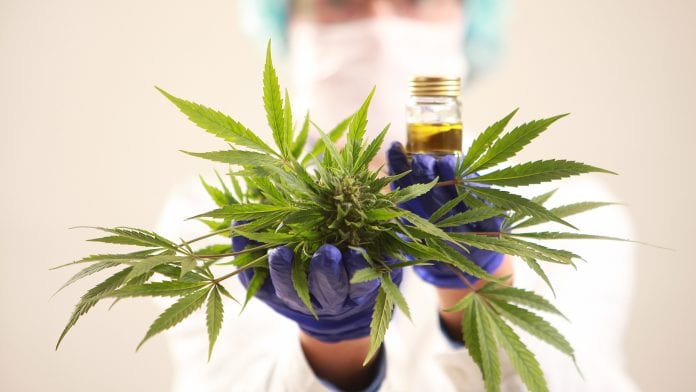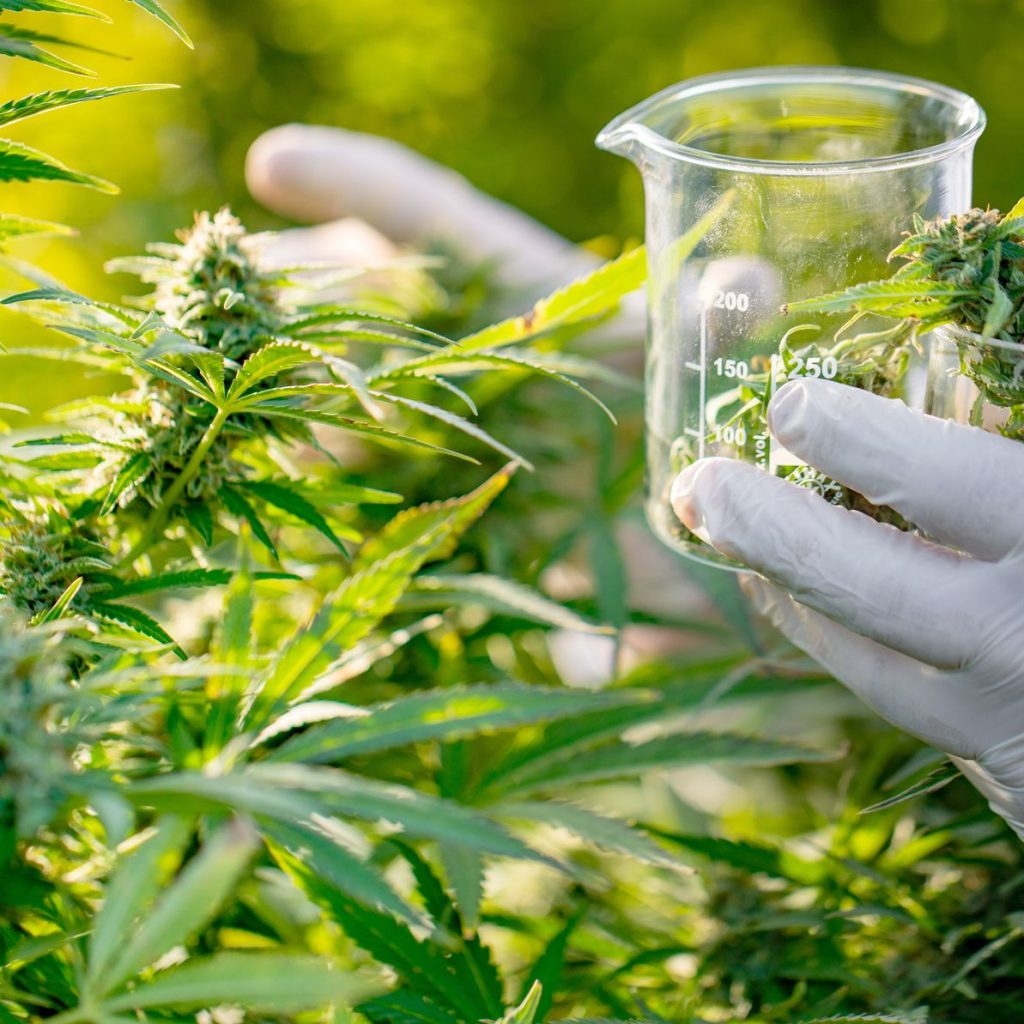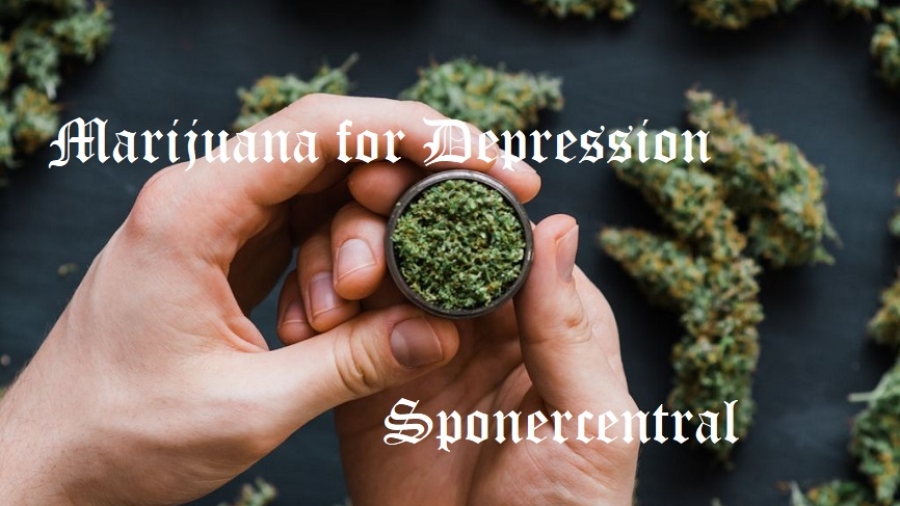Some research suggests that marijuana smokers are diagnosed with depression more often than nonsmokers are — particularly regular or heavy marijuana users. However, it doesn’t appear that marijuana directly causes depression.

It’s likely that the genetic, environmental or other factors that trigger depression also lead to marijuana use. Some people with depression may use marijuana as a way to detach from their depressive symptoms. Heavy users may appear depressed as a result of the dulling effects of the drug on feelings and emotions.
There also are links between marijuana and other mental health conditions. Marijuana use may trigger schizophrenia or detachment from reality (psychosis) in people who are at higher risk of psychosis. The symptoms of diagnosed psychotic illness may be aggravated if marijuana use continues.
There also is some evidence that teenagers who attempt suicide may be more likely to have used marijuana than those who have not made an attempt. As with marijuana use and depression, more research is needed to better understand these associations.
The bottom line: Marijuana use and depression accompany each other more often than you might expect by chance, but there’s no clear evidence that marijuana directly causes depression.

Symptoms of depression
Depression has several other symptoms that can occur individually or in combination, such as:
- Difficulty concentrating and remembering details
- Feeling constantly tired and a lack of energy
- Developing sleeping disorders like insomnia, or sleeping too much
- Having feelings of guilt, irritability, restlessness, hopelessness, pessimism or anxiety
- Losing interest in everyday activities
- Loss of appetite or overeating
- Physical aches and pains and digestive problems
- Suicidal thoughts
With more than 30 U.S. states and the District of Columbia, as well as the territories of Guam, U.S. Virgin Islands, and Puerto Rico legally allowing for the medical use of marijuana,much debate has ensued over which conditions should qualify patients for approved use.
Depression is one such condition (along with pain, anxiety, social anxiety, post-traumatic stress disorder, sleep, and others) that has been discussed. As of now, the research is mixed.
Depression and marijuana use often exist side-by-side in patients, but teasing apart their relationship with one another is a chicken-and-egg problem researchers have yet to solve.
Components of Marijuana
There are two main categories of chemicals present in marijuana, and they may have different effects on your depression:
- Tetrahydrocannabinol (THC) is the psychoactive component of marijuana that gives the feeling of being high and is what makes the drug appealing for recreational use.
- Cannabidiol (CBD) is the non-psychoactive component of the plant that contributes to its pharmacological actions without being involved in the high; this is the component of the drug that has been studied for the treatment of depression.
Can Marijuana Help Depression?
A February 2015 study by researchers at the University of Buffalo’s Research Institute on Addictions found that chemical compounds in the brain known as endocannabinoids, which are linked to feelings of overall well-being, activate the same receptors as many of the active compounds in marijuana.
In testing on rats, the researchers found that the production of endocannabinoids was lower in states of chronic stress than under normal conditions. They concluded that the chemicals in cannabis may be a useful treatment in restoring normal endocannabinoid function and alleviating symptoms of depression.
A study published in the Journal of Affective Disorders found that smoking cannabis can significantly reduce self-reported levels of depression in the short-term. Yet the researchers also found that repeated use didn’t lead to any long-term reduction of symptoms and may even increase depression over time in some people.
Understanding the Risks
Although there is some evidence that marijuana may have antidepressant properties, many argue there are also some important risks that need to be addressed when considering using the drug to treat depression.
Amotivational Syndrome
There is a well-known phenomenon called “amotivational syndrome,” in which people who regularly and heavily use cannabis become apathetic, socially withdrawn, and perform at a level of everyday functioning well below their capacity prior to their marijuana use.
Psychiatric Disorders
Some research indicates that people who use marijuana (especially regularly or heavily) are more likely to be diagnosed with depression than those who don’t use the drug. But research has failed to conclude that there is a causation relationship at play: That is to say that it is not clear that depression directly results from marijuana use.
In some people with a predisposition to other mental illnesses, such as schizophrenia and bipolar disorder, marijuana use may serve as a trigger for the disease’s expression. There also is some search that shows that heavy use of marijuana in adolescence (particularly in teenage girls) can be a predictor of depression and anxiety later on in a person’s life.
Certain people are also at risk for the development of psychosis with the use of cannabis. People with substance-induced psychosis might have delusions, hallucinations, or both.
Dependence
One of the biggest concerns with using marijuana as a depression coping tool is that it can result in psychological dependence. It is estimated that about 30% of people who use marijuana will eventually become addicted to marijuana, and the percentage rises in those who begin using marijuana before age 18.
Researchers at University at Buffalo have been experimenting with the extract cannabidiol to determine if it could offer mood-boosting benefits without the risk of drug dependency.
Less Patience for Proven Treatments
Since the effects of marijuana are fast-acting, experts are also concerned that proven long-term behavior-based coping strategies and depression treatments, like cognitive behavioral therapy (CBT), may seem less helpful at first and may be less likely to be pursued despite their value.
A Word From Verywell
As states continue to legalize the use of cannabis for medicinal purposes (and many for recreational use as well) and refine the criteria for eligibility, researchers will likely continue to explore the relationship between depression and marijuana use.
This will, however, likely require a much larger body of legitimate scientific research to prove or disprove the efficacy of medical marijuana, and potentially loosen the restrictions on its use. If you live with depression and are considering medical marijuana as a treatment option, consider first working with your doctor to weigh the pros and cons.

I was suicidal before I did any drugs. Now I smoke weed daily and I’m happier than I’ve ever been in my life. Thanks Canada for spreading the love and this way.